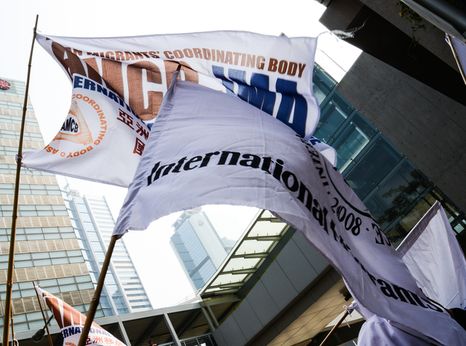7 Papuan activists jailed for anti-racism protest

Ferry Kombo, Alexander Gobai, Henky Hilapok and Irwanus Uropmabin were arrested between 6 and 11 September 2019 in Jayapura, Papua. They were accused of being masterminds of the 29 August 2019 Jayapura “riot,” because their student union was the only organization that informed the police that there would be a peaceful anti-racism protest in Jayapura. Between 9 and 23 September in Jayapura, the police arrested three KNPB leaders (Agus Kossay, Stevenus Itlay and Assa Asso) and a ULMWP activist who was also a former chairperson of the KNPB (Buchtar Tabuni). They all have been convicted of treason (makar).
The trial against the seven Papuan activists began on 11 February 2020. On 11 June the public prosecutor demanded the prison sentences between 5 to 17 years for the seven PoCs. The lawyers of the defendants have argued that the indictments failed to mention a clear time, place or how the defendants were involved in a criminal offense. However, on 17 June 2020 the Balikpapan District Court in East Kalimantan issued the verdict guilty of makar and the following sentences for the seven POCs: 10 months for Ferry Kombo, Irwanus Uropmabin, Hengky Hilapok and Alexander Gobai, and 11 months in prison for Buchtar Tabuni, Agus Kossay and Steven Itlay.
Article 106 of the Criminal Code authorizes the courts to sentence a person “to life imprisonment or a maximum of twenty years imprisonment for makar” and often used to criminalize the Papuan activists. In addition, Article 110 stipulates that conspiracy to commit makar is punishable as a violation of Article 106. There has been an increase in the imposition of treason (makar) in recent years on at least 44 Papuan activists due to peacefully exercising their rights to freedom of expression, association and peaceful assembly.
The treason articles in the Criminal Code is still often applied with a definition that is too general and vague so that it no longer concerns the original purpose of the article. So, this article can be arbitrarily used to limit the rights to freedom of opinion, expression, peaceful assembly and association.
The Indonesian authorities have used these criminal code provisions to prosecute dozens of peaceful pro-independence political activists in Papua and Maluku over the last decade.
Amnesty International does not take any position on the political status of any province or region in Indonesia, or any other state, including calls for independence. However, the organization believes that the right to freedom of expression also includes advocating for independence.